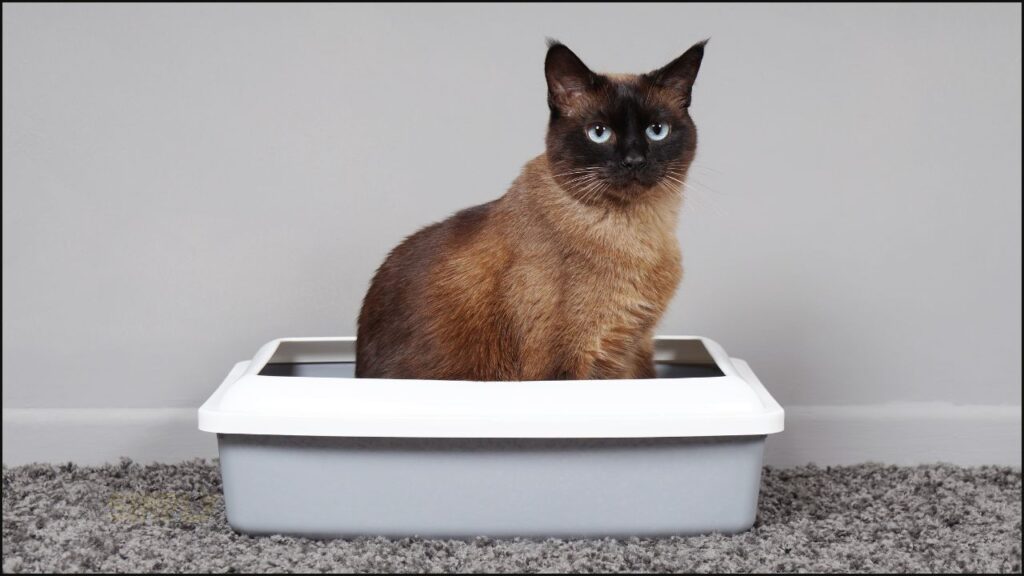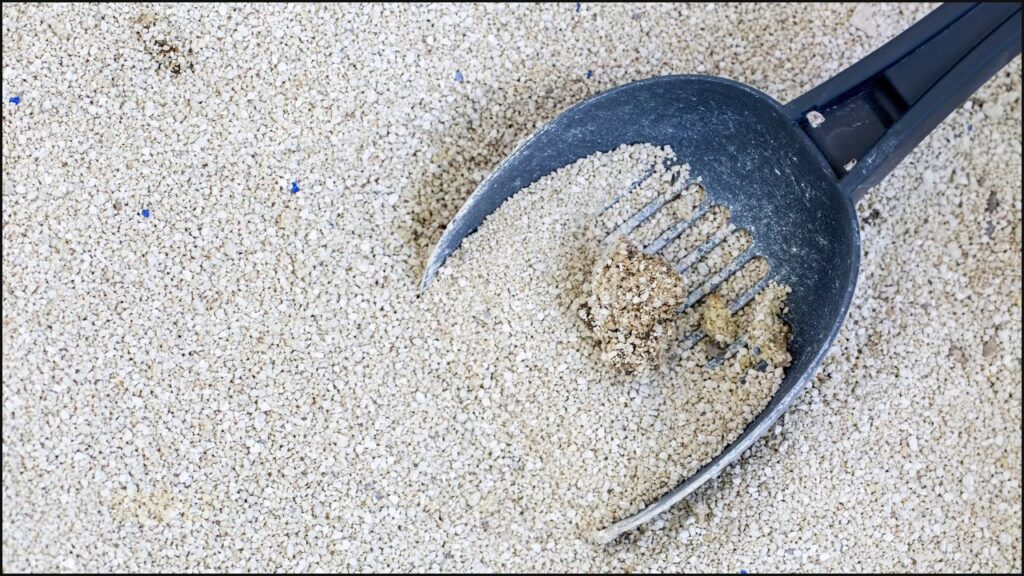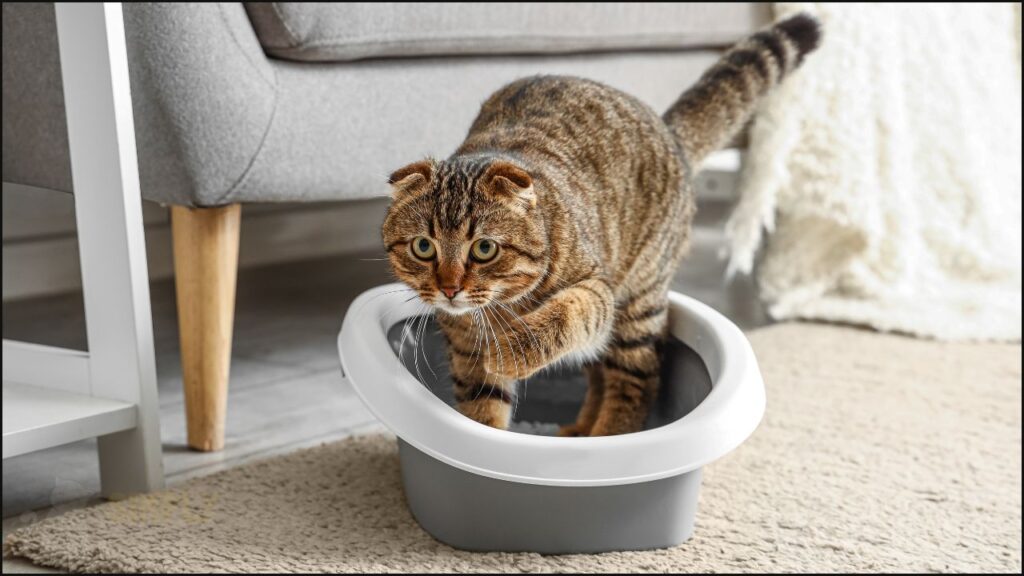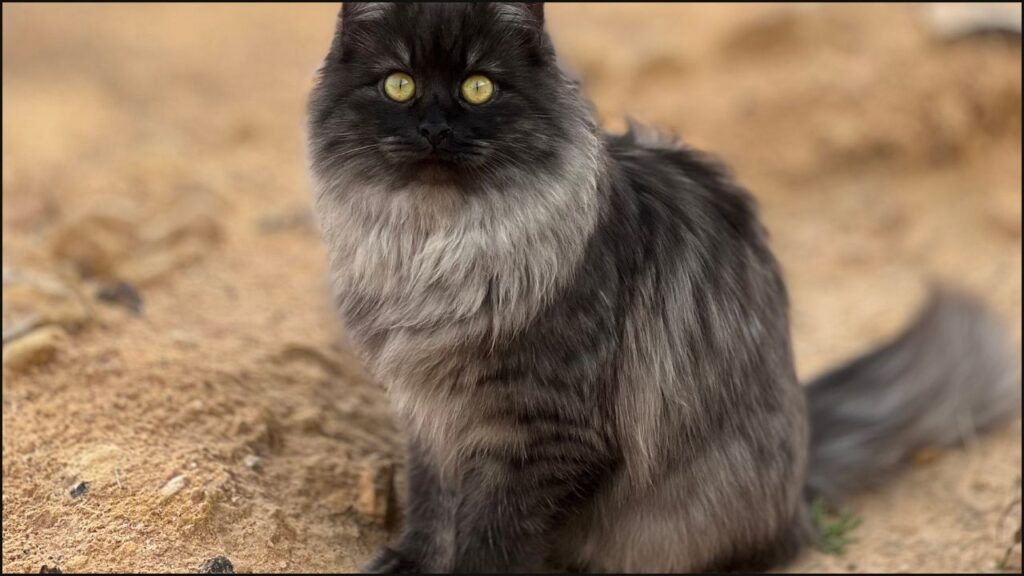Here’s some quick tips to beat litter box aversion:
- Daily litter cleaning
- Easier access to the litter tray
- Larger size litter box
- Using a finer grain litter
- Using activated charcoal for odor control
Litter aversion affects at least 10% of cat owners around the world. You might resort to giving up your cat to a shelter if not fixed.
Fortunately, there’s plenty of research into solutions that aren’t made up.
In this article, I’ll go through those solutions to litter box aversion and answer frequently asked questions on the topic.
I recommend seeking the advice of a vet for any further questions. The advice in this article is not intended as medical advice.
How Do You Treat a Litter Box Aversion?
Use a bigger litter box.
Research finds cats are twice as likely to use their litter tray if you opt for a bigger tray (86cm length).
It’s the most overlooked problem in the litter box world.
It makes sense for me – why would a cat want to use a crummy small rectangle?

What about cleanliness?
A complex study in 2017 sought to find out if cats prefer clean trays (or whether they don’t really care).
They tested a variety of litter trays with or without urine and feces from other cats. Then they compared to control litter trays with gelatin logs (i.e. odorless poo-like logs).
Ultimately, cats prefer an unobstructed litter box from from urine or feces. It doesn’t seem to matter if it’s their own or from another familiar cat or a pseudo-poo from gelatin.
Poo is poo.
And it gets in the way of a happy toilet experience.

Anything else?
One study tested an odor control spray which cat owners reported as beneficial. However, this doesn’t replace cleaning out the tray daily.
Fine grain litter is preferred, especially with long haired cats. In another study, only 1 of 18 cats preferred plant over clay based litter.
Cats don’t seem to care if the litter tray is uncovered or not.
Location also doesn’t seem to matter, although researchers suggest avoiding putting litter next to food (I don’t like eating in the toilet either).

So what to do?
Start by:
- Getting a bigger litter tray
- Get more diligent with daily litter cleaning
- Consider fine grain cat litter
If that doesn’t help?
See a vet.
Health issues (e.g. constipation) can affect elimination. A full range of diagnostic tests is important to find the cause of the problem.
Read more:
Frequently Asked Questions
Why Do Cats Have Instinct to Use a Litter Box?
Cats use sand.
Sand is the preferred material for toileting in wild cats. Mothers stimulate kittens to start eliminating by licking around the perineum at 4-5 weeks.
Urine marking is a normal communication behaviour in cats.

How Do You Neutralize Litter Smell?
Try activated charcoal.
Compared to bicarbonate soda, activated charcoal is the preferred odor control compound with cats.
Try picking up a cat litter with it or using liners.
The main way to control smell is with daily cleaning.
Cat Will Pee but Not Poop in Litter Box?
Constipation.
This is a common reason for reduced poo frequency.
Check for symptoms including:
- Strain in the litter box
- Lack of appetite
- Lethargy
- Vomiting
Consider adjusting cats diet, if your vet doesn’t have a solution.
Read more:
Conclusion
Here’s some quick tips to beat litter box aversion:
- Daily litter cleaning
- Easier access to the litter tray
- Larger size litter box
- Using a finer grain litter
- Using activated charcoal for odor control
If these strategies don’t work, see a vet. They will run through diagnostic tests to find out what is wrong.
Our recommended cat litter is World’s Best as it’s a plant based litter with a fine grain that’s easy on the paws.
>> Check out World’s Best Cat Litter here.
Further reading:
